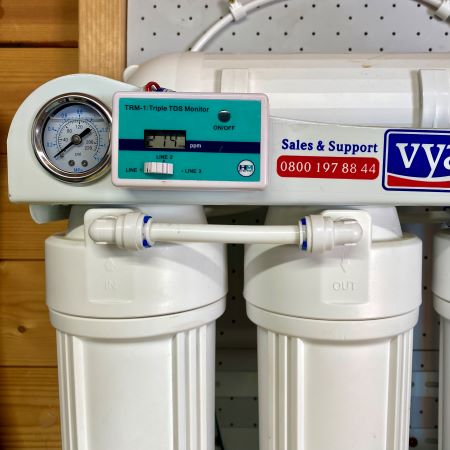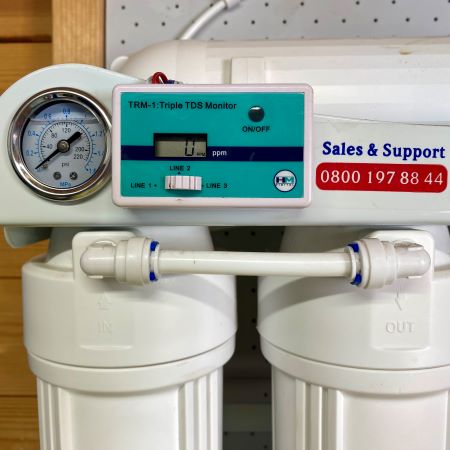Water straight from the tap has a high mineral content, particularly in Northampton which is
classed as a hard water area - you will notice the effect when you look in your kettle and find limescale.
In addition to the minerals, tap water contains chemicals that are added to make it safe to drink.
As you can see in the the image, a reading on an average day is 214 parts per million.
If windows were to be cleaned with this, these particles would be left on your windows and when the water evaporates, it will leave spots and streaks.

The goal is to get this number to 0.
The water goes through a series of steps which results in what is referred to as "Pure Water"
First the water passes through a series of 3 filters, each capable of removing increasingly smaller particles,
The water is now at a reading of 2ppm.
Then a reverse osmosis system filters further contaminants.
Next the water flows through a canister filled with a deionising resin which attracts any non-water ions remaining in it.
The water is now at 0ppm and is collected in a tank ready to be used to clean your windows.

Only this pure water is used to clean the windows. No detergents are required, making it safe and eco-friendly.
Water is known as the universal solvent - many substances dissolve in it - this is why it had all the minerals in previously, these had been picked up as
it had filtered though rocks.
Now pure, when it comes into contact with dirt and dust on the windows, the particles are attracted to the water and are washed away with it,
leaving your windows to dry crystal clear.